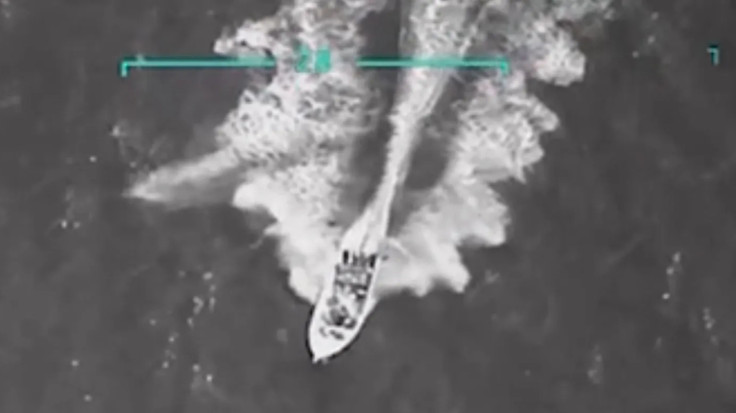
New details have emerged about last week's U.S. military strike on a Venezuelan boat in the southern Caribbean, which was allegedly filled with drugs.
According to reporting by The New York Times, the vessel had altered its course and appeared to be retreating before American forces destroyed it, killing 11 people on board.
U.S. officials familiar with the operation, who spoke on condition of anonymity, said the crew appeared to notice a military aircraft trailing them. The boat then reversed course but was still struck repeatedly until it sank. That revelation complicates the administration's defense of the attack, which it has framed as an act of national self-defense against drug smugglers headed toward the United States.
A Break From Traditional Interdiction
The September strike was a significant departure from the way drug interdictions are normally handled in the Caribbean. Typically, the U.S. Coast Guard, sometimes with Navy assistance, intercepts suspected smuggling vessels, searches for narcotics, and detains crews for prosecution. In this case, lethal force was used without an attempt at seizure or arrest.
President Donald Trump announced the strike last week, claiming the boat was operated by members of the Venezuelan gang Tren de Aragua. He said the group was transporting drugs "heading to the United States" and justified the decision as self-defense, citing the country's overdose crisis. Trump said, "We have tapes of them speaking," though no evidence has yet been made public.
Legal and Ethical Debate
The disclosure that the boat had already turned back is fueling a debate over whether the strike was legally defensible. Retired military lawyers told The Times and other outlets that treating drug smugglers as enemy combatants under the laws of war represents a novel and legally shaky interpretation.
"If someone is retreating, where is the imminent threat?" asked Rear Adm. Donald J. Guter, the Navy's former top judge advocate general. Others argued that even if drug trafficking represents a serious danger, it does not constitute the kind of armed attack that international law requires for the use of lethal military force.
The White House has maintained that Trump "acted in line with the laws of armed conflict" to defend the homeland from what it called "narco-terrorists." Pentagon spokesman Sean Parnell said the strike "sent a clear message" to anyone attempting to traffic narcotics toward U.S. shores.
Regional Fallout
The incident comes at a moment of heightened military activity in the Caribbean. The United States recently deployed F-35 fighter jets and thousands of troops to Puerto Rico as part of expanded anti-drug operations. Venezuela has responded by sending more troops to coastal states, accusing Washington of using counternarcotics as a pretext for regime change.
The revelation that the vessel was already turning away before it was destroyed underscores the potential political and diplomatic costs of this new strategy. What the Trump administration calls a necessary act of self-defense, critics describe as an escalation that risks pushing routine interdictions into a shadow war on the high seas.
© 2025 Latin Times. All rights reserved. Do not reproduce without permission.







